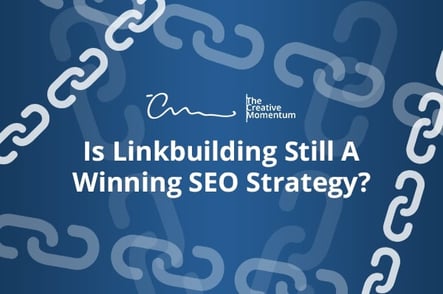
Link building, for a long time, has been considered an important ranking factor. Backlinks are Google's go-to ranking signal, with each of these links considered as "votes" for your website and content.
Even so, a growing tribe of webmasters have noticed a decline in their link-building value:
- Link spamming—the out-of-context links on websites, discussion forums, blog comments, guestbooks, etc.—is getting devalued and will not rank your site anywhere.
- Google's ambiguous Penguin update is making marketers rethink or avoid link schemes completely.
The truth is, you can't ignore link building. A website can't really rank well without its two undisputed ingredients—content and links that point to its site.
Link Building: The Genesis
In the late 90's, Google co-founder, Larry Page, invented PageRank. It helped Google measure the quality of a page based on the number of links that pointed toward it. This led many webmasters to exchange links with other websites for higher rankings.
The strategy eventually shifted to emphasize guest blogging. Blog networks offered a much easier way for link builders to find links from thousands of websites, but at the same time, if it was linked to irrelevant content, the site didn't rank well.
The biggest shift happened in 2012 with Google's Penguin update. It brought about a radical change in the way links were perceived by Google and by marketers. Rankings were adjusted by no longer penalizing the site or specific pages, but, rather, it ignored or devalued spammy links. And with time, Google, with its improved algorithms, is making it easier to spot and devalue spammy links.
Why Link Building Matters
So why all the fuss about building links? For one, building links is critical for higher ranking in search engines, according to Backlinko, an SEO consultancy group. The research analyzed over one million search results and noticed that top-ranking content always showed more backlinks than lower-ranked pages on any search engine results page.
However, just including 100,000 backlinks won't help with your SEO. If you want to rank higher, you need backlinks from a diverse source of websites and, preferably, from higher domain authority sites. To sum it up, you need high-quality links from high-quality sites.
Links are still seen as an important ranking factor by Google algorithms, and you need a human approach in order to promote your content to the right audience and get better rankings.
Link Building across Different Search Engines
According to Statcounter GlobalStats's recent report, Google owns 90.88 percent of the global search engine market share, whereas Bing and Yahoo own just 3.17 and 2.46 percent respectively.
Though Google has a huge market share, webmasters can optimize their content across all platforms simultaneously. The good news is that SEO techniques work the same across platforms, so writers and marketers can focus on content marketing and link building without having to worry about the search engines.
Some of the key differences in link building include:
- Google places more importance on link quality while Bing focuses on link quantity.
- In terms of anchor text, exact-match anchor text is liable for a penalty on Google, but Bing encourages optimizing anchors.
- Bing also supports driving links with social media in increasing site ranking.
Future-Proof Your Link Building Strategies
With advancements in the SEO landscape, link-building strategies have transformed over the years. High-quality link-building strategies involve producing specific chunks of content with relevant, valuable embedded links pointing back to the domain published on high-authority websites.
Additionally, they include the production, publication, and syndication of high-value content on the website to find valued organic ranking.
So, how do SEOs build links these days?
- Invest in Original Data and Research: In an industry where "content rules," no content is more valuable than current news and unpublished industry insights. Original research means you are creating a cornerstone asset with complete creative control, and whenever anyone writes something based on your research, it will link back to you.
- Look for Legitimate Links: Plenty of opportunities still exist to buy links that are more legitimate. For example, you can invest in paid product reviews, sponsorships, and creating guest content on authoritative sites.
- Develop Relevant and Valuable Content: Content building always wins the game. You must write content that solves your readers' problems to attract their attention and deliver value.
- Link Building with Videos and Social Media: Sharing content and including links in social media profiles is considered to be an effective link building strategy. Even self-hosting videos wind up in Google's pocket.
A link validates the relevance of your site, which can be further endorsed by a larger audience. And remember that backlinks are just one among hundreds of ranking signals. Good content backed up with data-driven ideas may not always earn you links, but they’re still useful for things such as lead generation, awareness, and audience growth.



